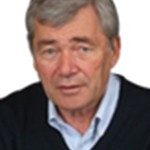Lien vers Pubmed [PMID] – 18213388
Lien DOI – 10.1371/journal.pone.0001480
PLoS One 2008 Jan; 3(1): e1480
Somatic hypermutation (SHM) of immunoglobulin genes is currently viewed as a two step process initiated by the deamination of deoxycytidine (C) to deoxyuridine (U), catalysed by the activation induced deaminase (AID). Phase 1 mutations arise from DNA replication across the uracil residue or the abasic site, generated by the uracil-DNA glycosylase, yielding transitions or transversions at G:C pairs. Phase 2 mutations result from the recognition of the U:G mismatch by the Msh2/Msh6 complex (MutS Homologue), followed by the excision of the mismatched nucleotide and the repair, by the low fidelity DNA polymerase eta, of the gap generated by the exonuclease I. These mutations are mainly focused at A:T pairs. Whereas in activated B cells both G:C and A:T pairs are equally targeted, ectopic expression of AID was shown to trigger only G:C mutations on a stably integrated reporter gene. Here we show that when using non-replicative episomal vectors containing a GFP gene, inactivated by the introduction of stop codons at various positions, a high level of EGFP positive cells was obtained after transient expression in Jurkat cells constitutively expressing AID. We show that mutations at G:C and A:T pairs are produced. EGFP positive cells are obtained in the absence of vector replication demonstrating that the mutations are dependent only on the mismatch repair (MMR) pathway. This implies that the generation of phase 1 mutations is not a prerequisite for the expression of phase 2 mutations.



